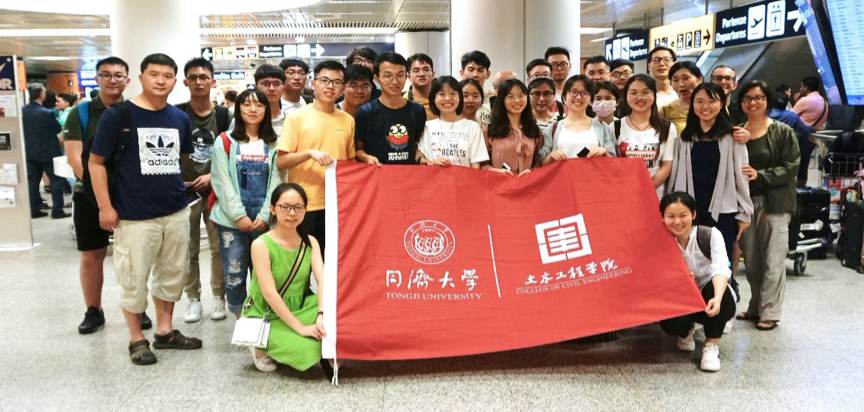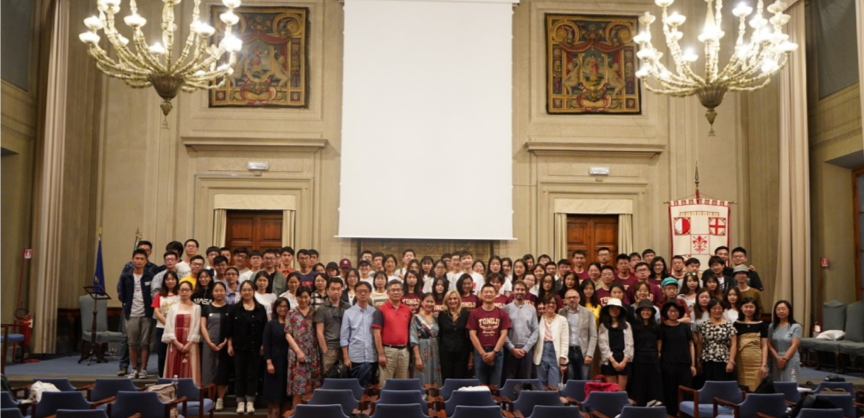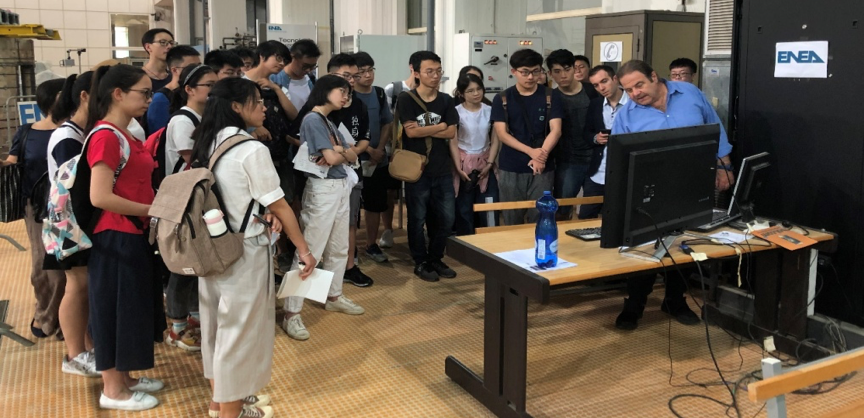Search

News & Events
The College of Civil Engineering organized a summer camp in Italy from 8-21 July, 2019. A total of 26 undergraduate students and 4 staff members, headed by Prof. Yongjing Tang, participated in this program. During the two-week camp, the participants visited the classic architectures in Rome, Florence, Bologna and Venice, attended the lectures given by professors and researchers, and completed their group discussions and personal presentations.
On 9 July, the delegation arrived at the ENEA Research Center in Rome. They listened to three academic reports on different topics and learned about earthquake prevention and disaster reduction. Afterwards, they visited the shaking table laboratory of ENEA and experienced different experimental observation methods. In the following days, the students carried out field investigations at the Colosseum, the Pantheon, the Vatican Museums, etc.
After an unforgettable journey in Rome, the delegation explored Florence, the birthplace of the Renaissance. On 15 July, the students visited Basilica di Santa Maria del Fiore and listened to the introductions to the conservation of this building. In the afternoon of the same day, the participants attended the opening ceremony of the summer camp on Florence Campus of Tongji University. From 16 to 17 July, the students attended the lectures given by professors from China and Italy. Prof. Xiaobin Song introduced the Chinese traditional structures and explained its connection with history, region and culture. Prof. Giacomo Tempesta gave a lecture on strengthening and rehabilitation of the leaning tower of Pisa. Prof. Yongjing Tang gave advices on the students’ presentations on their observations during the camp.
Farewell to Florence, the delegation visited Bologna on the 18th. Professors from the University of Bologna introduced the history of Bologna's construction and building materials in the Old City Hall. Later, the teachers and students took a train to Ravenna to investigate a number of Byzantine-style historical buildings. Next day, the delegation came to the UNESCO Office in Venice. The staff there elaborated on their mission of protecting historical buildings and cultural relics. The delegation also caught a glimpse of the beautiful city of water.
The two-week summer camp has deepened students' understanding of the protection of historical buildings and promoted cultural communication between teachers and students in China and Italy. It is also a good way to accumulate strength for sustainable development in the field of historical building protection and restoration.







